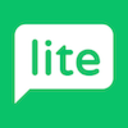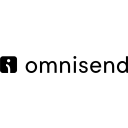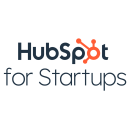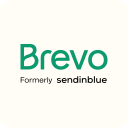Omnisend vs Mailchimp: The best email marketing solution for you
- 01Omnisend vs Mailchimp: overview
- 02What's the difference between Omnisend and Mailchimp?
- 03Omnisend pros and cons
- 04Mailchimp pros and cons
- 05Omnisend compared to Mailchimp
- 06Mailchimp compared to Omnisend
- 07Features comparison
- 08Omnisend vs Mailchimp: Which is the best for your business?
- 09Promotions on Marketing Automation software
- 10Alternatives to Omnisend & Mailchimp
Access up to $199 savings on Omnisend & $1,870 on Mailchimp
Access up to $199 savings on Omnisend & $1,870 on Mailchimp
Optimizing your email marketing efforts requires the right platform to streamline workflows, enhance engagement, and drive conversions. That's where Omnisend and Mailchimp come into play. These two email marketing giants offer comprehensive solutions for businesses of all sizes, but choosing between them can be a challenge.
In this comparison, we'll delve into the key features, pricing structures, and unique offerings of Omnisend vs Mailchimp. By exploring their functionalities and dissecting their differences, you'll be equipped to make an informed decision about which platform best suits your email marketing objectives. Whether you prioritize advanced automation capabilities, robust analytics, or user-friendly interface, this analysis will help you identify the ideal fit for your marketing strategy.
Omnisend vs Mailchimp: overview
Omnisend and Mailchimp are two leading contenders in the realm of email marketing platforms, each boasting unique features and advantages designed to meet varying business needs.
Omnisend is recognized for its comprehensive automation capabilities and omnichannel marketing tools. It offers sophisticated automation workflows, personalized messaging, and integrated channels such as SMS and social media, providing a holistic approach to marketing campaigns. On the other hand, Mailchimp is celebrated for its user-friendly interface and extensive integrations. With drag-and-drop email design, robust analytics, and a wide range of third-party app connections, Mailchimp offers flexibility and ease of use for businesses of all sizes.
Now, let's delve into the Omnisend vs. Mailchimp comparison to help you navigate the nuances and determine the ideal email marketing platform for your specific requirements.
What's the difference between Omnisend and Mailchimp?
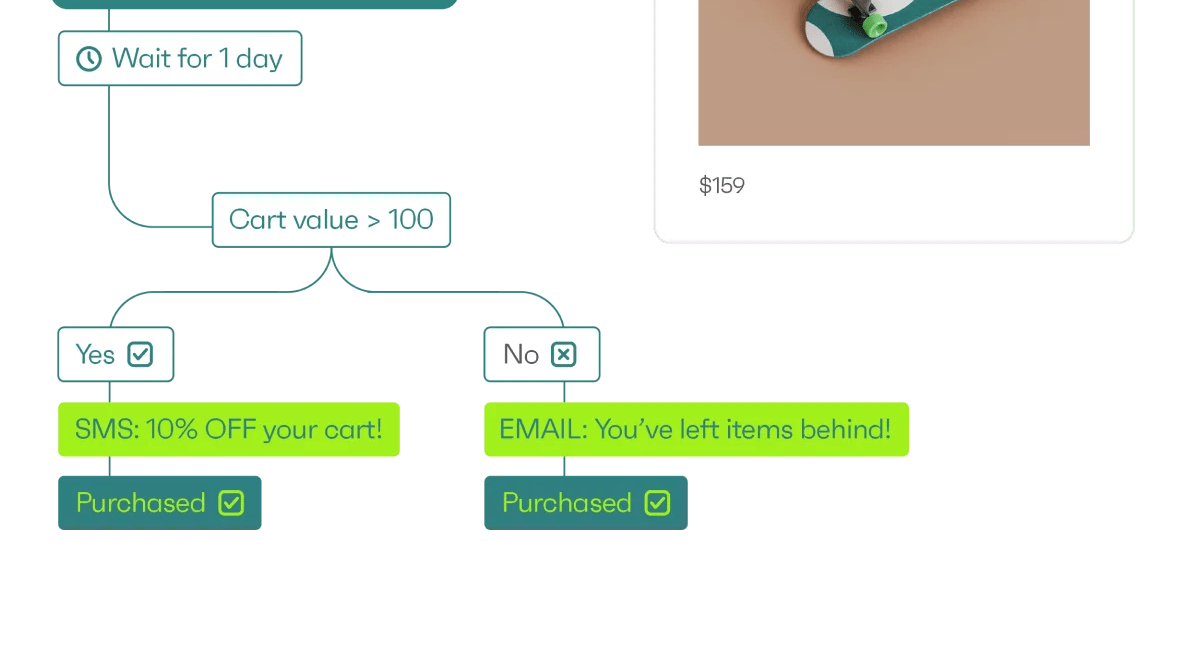
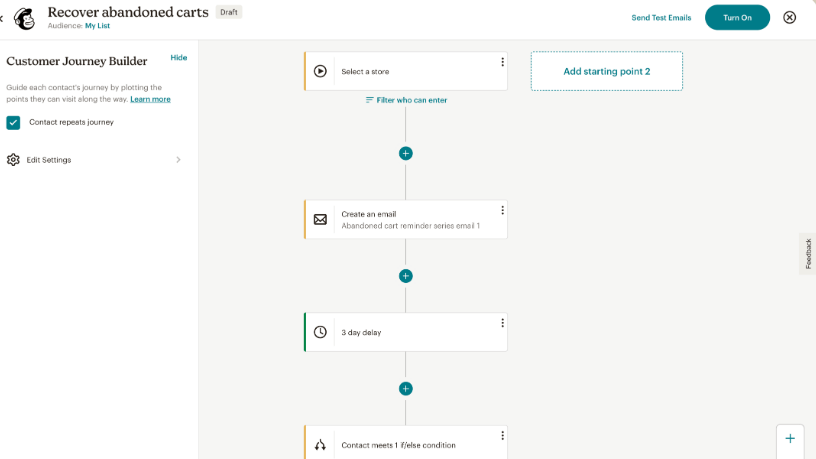
Omnisend and Mailchimp are both powerful email marketing platforms designed to automate campaigns, engage subscribers, and drive conversions effectively. Both platforms offer a wide range of features to streamline email marketing efforts and help businesses reach their marketing goals. However, several key differences between Omnisend and Mailchimp may influence your decision on which platform best suits your needs.
One significant difference lies in their approach to omnichannel marketing. Omnisend specializes in omnichannel marketing, offering seamless integration with various channels such as email, SMS, push notifications, and more. This allows marketers to create cohesive, cross-channel campaigns that reach customers wherever they are. In contrast, while Mailchimp does offer some omnichannel features, its primary focus is on email marketing, with fewer built-in capabilities for other channels.
Another differentiating factor is their approach to automation. Omnisend is known for its robust automation capabilities, allowing users to create complex, behavior-based automation workflows easily. These workflows can trigger personalized messages based on customer actions, helping to nurture leads and drive conversions. On the other hand, while Mailchimp also offers automation features, they may not be as advanced or flexible as those offered by Omnisend.
Integration options also vary between the two platforms. Omnisend offers seamless integrations with popular e-commerce platforms such as Shopify, WooCommerce, and BigCommerce, making it easy to sync customer data and track sales directly within the platform. Mailchimp also integrates with e-commerce platforms but may not offer the same level of depth or customization options as Omnisend.
Omnisend pros and cons
What are the advantages of Omnisend?
- Omnichannel marketing: Omnisend excels in offering omnichannel marketing capabilities, allowing you to reach your audience across various channels such as email, SMS, push notifications, Facebook Messenger, and more. This enables you to create cohesive and personalized campaigns that engage customers at every touchpoint.
- Advanced automation: Omnisend provides robust automation features, including workflow automation, behavioral targeting, and segmentation. This allows you to automate repetitive tasks, deliver personalized messages based on customer behavior, and nurture leads throughout the customer journey, ultimately saving time and increasing efficiency.
- E-commerce integration: Omnisend seamlessly integrates with popular e-commerce platforms like Shopify, WooCommerce, and BigCommerce. This integration enables you to sync customer data, track sales, and create targeted campaigns tailored to your customers' purchasing behavior, enhancing the effectiveness of your marketing efforts.
- Powerful analytics: Omnisend offers comprehensive analytics and reporting tools that provide valuable insights into the performance of your campaigns. You can track key metrics such as open rates, click-through rates, conversion rates, and revenue generated, allowing you to optimize your strategies and drive better results.
- User-friendly interface: Omnisend features an intuitive and user-friendly interface that makes it easy for marketers of all skill levels to navigate and use the platform effectively. With drag-and-drop editors, customizable templates, and pre-built automation workflows, you can create professional-looking campaigns without any coding knowledge.
What are the disadvantages of Omnisend?
- Cost: While Omnisend offers a range of pricing plans to accommodate different budgets, some users may find the cost of higher-tier plans to be prohibitive, especially for small businesses or startups operating on a tight budget.
- Learning curve: Despite its user-friendly interface, mastering all of Omnisend's features and capabilities may require some time and effort, particularly for users who are new to email marketing or marketing automation.
- Limited integrations: While Omnisend integrates seamlessly with major e-commerce platforms, it may have fewer integrations with other third-party tools and services compared to some other email marketing platforms.
- Customer support: While Omnisend offers customer support via email, live chat, and help center resources, some users have reported experiencing delays in response times or difficulty in resolving technical issues.
- Template customization: While Omnisend provides a variety of customizable templates for email campaigns, some users may find the level of customization options to be somewhat limited compared to other email marketing platforms.
Compare Omnisend to other tools
Mailchimp pros and cons
What are the advantages of Mailchimp?
- User-friendly interface: Mailchimp is known for its intuitive and user-friendly interface, making it easy for beginners to create and send professional-looking email campaigns without the need for extensive technical knowledge or experience.
- Extensive template library: Mailchimp offers a vast library of pre-designed templates for various types of email campaigns, including newsletters, promotional emails, and automated workflows. This allows users to quickly customize and deploy campaigns with minimal effort.
- Advanced analytics: Mailchimp provides comprehensive analytics and reporting tools that allow users to track key metrics such as open rates, click-through rates, and conversion rates. These insights help marketers understand the effectiveness of their campaigns and make data-driven decisions to optimize performance.
- Integration ecosystem: Mailchimp integrates seamlessly with a wide range of third-party apps and platforms, including e-commerce platforms like Shopify, WooCommerce, and Magento, as well as CRM systems like Salesforce and HubSpot. This allows users to sync customer data, automate workflows, and streamline their marketing efforts.
- Free plan: Mailchimp offers a free plan that allows users to send up to 1,000 emails per month to a maximum of 500 contacts. This is particularly beneficial for small businesses and startups with limited budgets, providing them with access to essential email marketing tools at no cost.
What are the disadvantages of Mailchimp?
- Limited automation features: While Mailchimp does offer automation features, such as email automation and audience segmentation, some users may find its capabilities to be more limited compared to other email marketing platforms like Omnisend.
- Pricing structure: While Mailchimp's free plan is attractive for small businesses, its paid plans can become expensive as your subscriber list grows. The pricing structure is based on the number of subscribers, and costs can increase significantly for larger lists or additional features.
- Design limitations: While Mailchimp's template library is extensive, some users may find the customization options to be somewhat limited, particularly when compared to other email marketing platforms that offer more advanced design features.
- Customer support: Mailchimp's customer support options are primarily limited to email and chat support, with no option for phone support. Some users have reported experiencing delays in response times or difficulties in resolving technical issues.
- List management complexity: Managing subscriber lists in Mailchimp can be complex, especially for users with large or segmented lists. Some users have reported challenges with list organization, duplicate contacts, and unsubscribed subscribers affecting deliverability and campaign performance.
Compare Mailchimp to other tools
Omnisend compared to Mailchimp
Omnisend and Mailchimp are prominent email marketing platforms, each offering distinct advantages. Omnisend stands out for its robust omnichannel marketing capabilities, seamlessly integrating email, SMS, and more for comprehensive campaigns. Its advanced automation features enable personalized messaging and efficient workflows.
In contrast, Mailchimp is renowned for its user-friendly interface and extensive template library, catering to beginners and professionals alike. While both platforms excel in different areas, Omnisend's emphasis on omnichannel marketing and sophisticated automation makes it ideal for businesses seeking holistic campaign management.
Is Omnisend better than Mailchimp?
Choosing between Omnisend and Mailchimp depends largely on your business needs and marketing strategies. Omnisend is a powerful option for those looking to leverage a variety of channels beyond email, offering a unified approach to customer engagement. Its sophisticated automation tools are designed to deliver personalized experiences at scale, making it a strong contender for businesses aiming to automate their marketing efforts comprehensively.
Mailchimp, on the other hand, shines with its simplicity and ease of use, making it a favorite among newcomers and those who prioritize quick, efficient campaign setup without a steep learning curve.
What is Omnisend best used for?
Omnisend is best used for businesses looking to implement comprehensive omnichannel marketing strategies. With its powerful automation capabilities, Omnisend enables businesses to create personalized and targeted campaigns across various channels such as email, SMS, push notifications, and more. It excels in nurturing leads, increasing customer engagement, and driving conversions throughout the entire customer journey.
Additionally, Omnisend's seamless integration with popular e-commerce platforms makes it particularly well-suited for online retailers looking to optimize their marketing efforts and maximize revenue. Whether it's automating workflows, segmenting audiences, or analyzing campaign performance, Omnisend empowers businesses to achieve their marketing goals effectively.
Can Omnisend replace Mailchimp?
While Omnisend offers robust features for email marketing and automation, whether it can fully replace Mailchimp depends on specific business needs. Omnisend excels in omnichannel marketing, providing advanced automation capabilities and seamless integration with e-commerce platforms.
However, Mailchimp is renowned for its user-friendly interface, extensive template library, and comprehensive analytics. While Omnisend may suit businesses prioritizing omnichannel marketing and advanced automation, Mailchimp may be preferable for those seeking simplicity and versatility.
Is Omnisend cheaper than Mailchimp?
Determining whether Omnisend is cheaper than Mailchimp depends on various factors such as the size of your subscriber list, required features, and usage frequency.
While both platforms offer pricing plans tailored to different needs, Omnisend's pricing structure may be more cost-effective for businesses with larger subscriber lists or those requiring advanced automation capabilities. Additionally, Omnisend's transparent pricing and flexible billing options make it easier to budget effectively.
Is there a better Marketing Automation software than Omnisend?
Determining whether there's a "better" software than Omnisend depends on your specific email marketing needs and objectives. Omnisend is highly regarded for its comprehensive omnichannel marketing capabilities, advanced automation features, and seamless integration with e-commerce platforms, making it a popular choice for many businesses.
However, alternatives to Omnisend such as Mailchimp, Klaviyo, HubSpot, and ActiveCampaign may better suit certain organizations. Mailchimp is known for its user-friendly interface and extensive template library, while Klaviyo offers robust segmentation and personalization tools. ActiveCampaign provides powerful automation and CRM features.
10% off the monthly Pro Plan on Omnisend
Get 10% off the monthly Pro Plan on Omnisend and up to $199 savings with Secret.
Mailchimp compared to Omnisend
Mailchimp and Omnisend are leading email marketing platforms, each offering unique features and benefits. Mailchimp is recognized for its user-friendly interface, extensive template library, and comprehensive analytics, making it a popular choice for businesses of all sizes.
On the other hand, Omnisend excels in omnichannel marketing, providing advanced automation capabilities and seamless integration with e-commerce platforms. While Mailchimp may be preferable for those seeking simplicity and versatility, Omnisend is ideal for businesses prioritizing omnichannel marketing and advanced automation.
Is Mailchimp better than Omnisend?
When evaluating Mailchimp against Omnisend, it's crucial to consider the specific needs of your marketing strategy. Mailchimp's appeal lies in its accessibility and the breadth of resources it offers, making it an excellent tool for both beginners and seasoned marketers. Its strength is in its simplicity and the ability to quickly deploy campaigns that are both effective and visually appealing.
For businesses that prioritize straightforward email marketing campaigns and value analytics to refine their strategies, Mailchimp offers an intuitive platform that simplifies the marketing process. In contrast, for those focusing on a more integrated, multi-channel approach, Omnisend might present a more specialized solution.
What is Mailchimp best used for?
Mailchimp is best used for businesses looking to execute effective email marketing campaigns with ease. With its user-friendly interface and extensive template library, Mailchimp simplifies the process of creating professional-looking emails tailored to various marketing goals. It's particularly beneficial for small to medium-sized businesses seeking to engage their audience and drive conversions through targeted email communications.
Additionally, Mailchimp's comprehensive analytics tools provide valuable insights into campaign performance, enabling users to optimize strategies and achieve better results over time. Whether it's newsletters, promotional campaigns, or automated workflows, Mailchimp empowers businesses to connect with their audience effectively through email.
Can Mailchimp replace Omnisend?
While Mailchimp offers robust features for email marketing, whether it can fully replace Omnisend depends on specific business needs. Mailchimp excels in user-friendly email campaign creation, extensive template library, and comprehensive analytics.
However, Omnisend specializes in omnichannel marketing, advanced automation, and seamless integration with e-commerce platforms. While Mailchimp may suit businesses prioritizing simplicity and versatility, Omnisend may be preferable for those requiring advanced automation and omnichannel capabilities.
Is Mailchimp cheaper than Omnisend?
Determining whether Mailchimp is cheaper than Omnisend depends on factors such as the size of your subscriber list, required features, and frequency of usage. While both platforms offer pricing plans tailored to different needs, Mailchimp's pricing structure may be more cost-effective for businesses with smaller subscriber lists or those seeking simplicity.
However, Omnisend's transparent pricing and flexible billing options make it a viable choice for businesses requiring advanced automation and omnichannel marketing capabilities.
Is there a better Email Marketing software than Mailchimp?
Determining whether there's a superior software to Mailchimp depends on your specific email marketing needs and objectives. Various alternatives cater to diverse business requirements.
Alternatives to Mailchimp include Omnisend, Klaviyo, Brevo (ex. Sendinblue), ActiveCampaign, and Campaign Monitor, each offering unique strengths. For instance, Klaviyo is renowned for its advanced segmentation and personalization tools, while ActiveCampaign provides robust automation and CRM features. The choice of the optimal software depends on your individual circumstances, budget, and feature priorities.
50% off the Standard plan for 6 months on Mailchimp
Get 50% off the Standard plan for 6 months on Mailchimp and up to $1,870 savings with Secret.
Features comparison
Mailchimp's Integration Versatility Outshines Omnisend's

While both platforms offer expansive integration possibilities, Mailchimp surpasses Omnisend, offering a broad array of connections to suit diverse business requirements. Mailchimp's ecosystem boasts integration with numerous apps and services spanning various industries.
For instance, it seamlessly integrates with leading e-commerce platforms like Shopify and WooCommerce, empowering businesses to sync customer data and streamline marketing efforts effortlessly. Moreover, its compatibility extends to popular CRM tools such as Salesforce, enhancing data management and customer relationship functionalities. While Omnisend also offers integrations, Mailchimp's expansive range provides unparalleled flexibility and adaptability, catering to businesses seeking comprehensive connectivity solutions beyond basic platforms.
Mailchimp Surpasses Omnisend in User-Friendliness with Intuitive Interface and Extensive Support
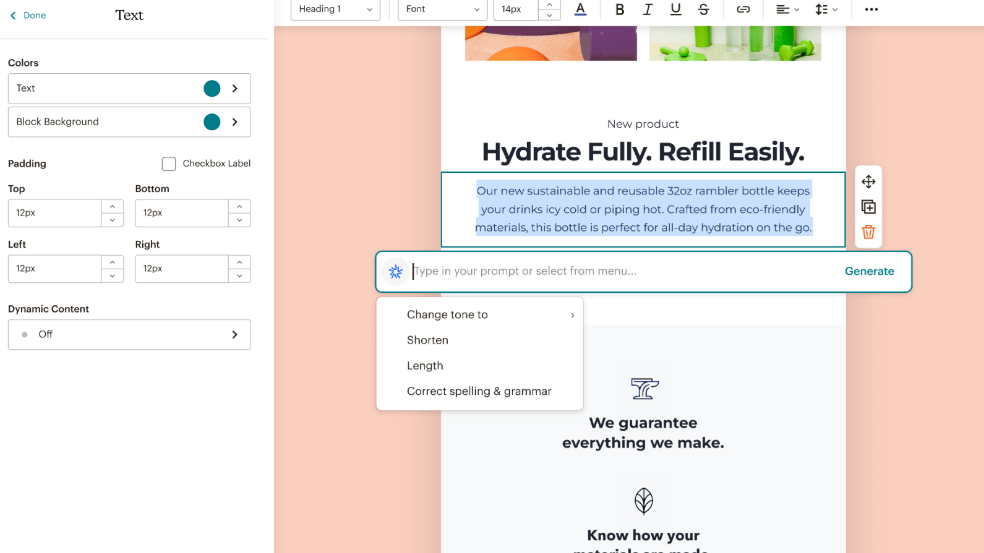
In terms of user-friendliness, Mailchimp indeed holds a notable advantage over Omnisend. Mailchimp's interface is renowned for its simplicity and ease of navigation, making it particularly appealing to beginners and small businesses. With its drag-and-drop email builder, customizable templates, and straightforward campaign creation process, users can quickly design and deploy professional-looking emails without the need for extensive technical expertise.
Additionally, Mailchimp offers comprehensive support resources, including tutorials, guides, and responsive customer service, ensuring users can easily overcome any challenges they encounter. Overall, Mailchimp's intuitive interface and robust support make it a top choice for those prioritizing user-friendliness in their email marketing platform.
Mailchimp Takes the Lead in Robust Reporting and Analytics Over Omnisend

Mailchimp outperforms Omnisend when it comes to the scope of reporting and analytics. Mailchimp's advanced reporting tools offer a comprehensive view of email campaign performance, allowing users to track metrics such as open rates, click-through rates, and revenue generated from each campaign. For example, Mailchimp provides detailed insights into audience engagement, segmentation effectiveness, and campaign ROI, enabling businesses to make data-driven decisions and optimize their strategies for better results.
While Omnisend also offers comprehensive reports, Mailchimp's analytical capabilities provide a stronger foundation for informed decision-making, making it a preferred choice for businesses prioritizing data-driven marketing.
Omnisend Edges Ahead in Precise Customer Targeting with Predictive Segmentation

Both Omnisend and Mailchimp offer robust segmentation capabilities based on buying behavior and events of interest. However, Omnisend gains an edge with its predictive segmentation feature, which goes beyond traditional segmentation methods by analyzing customer data to anticipate future behavior.
For instance, Omnisend's predictive segmentation may identify repeat customers or recurring spending habits over time, allowing businesses to tailor their marketing strategies accordingly. Despite this advantage, both tools perform admirably in this category, providing users with powerful tools to segment their audience and deliver targeted, personalized campaigns that drive engagement and conversions.
Omnisend Outperforms Mailchimp in Personalization Capabilities with Dynamic Content Integration
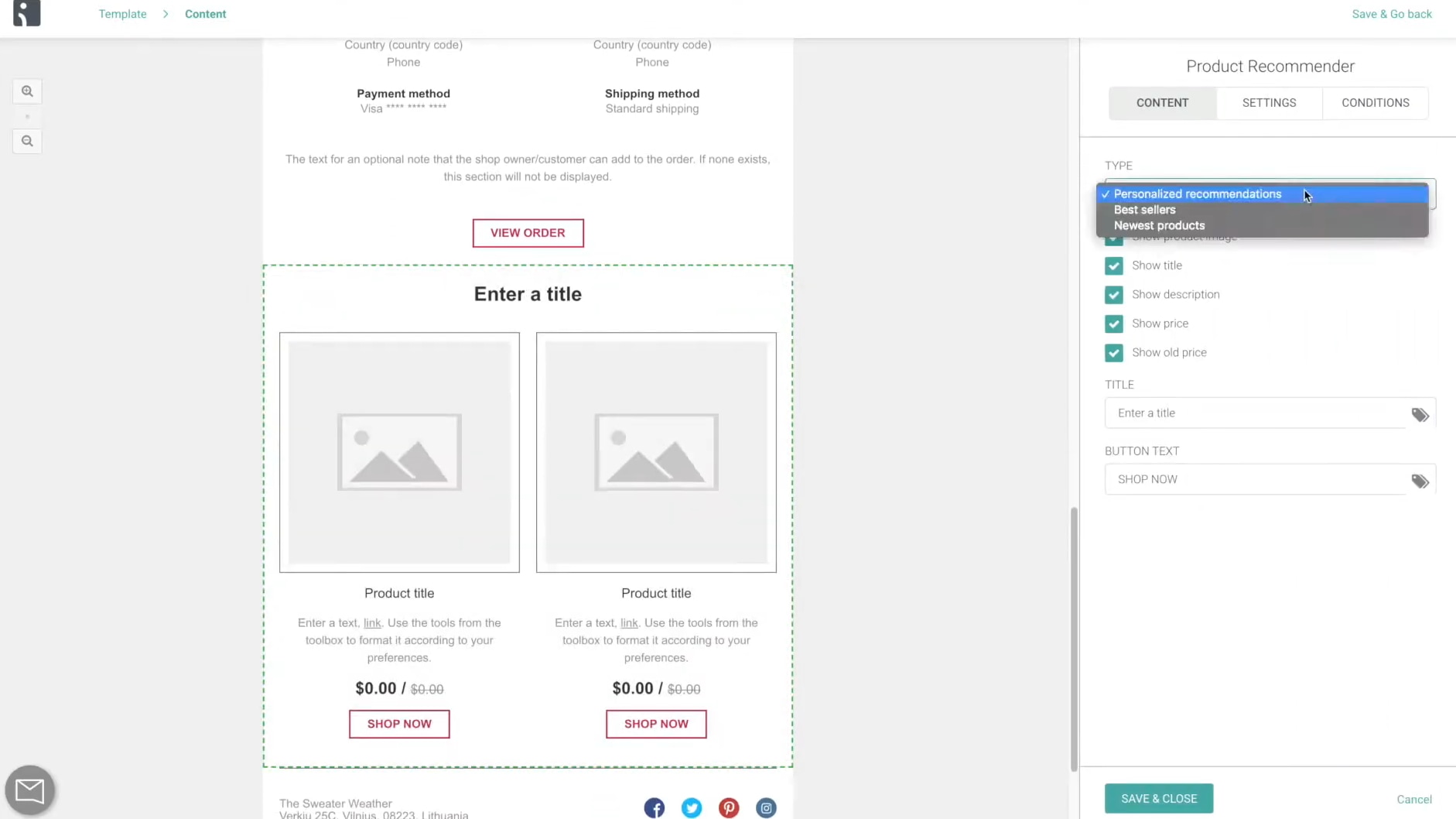
When it comes to personalizing campaigns, Omnisend emerges as the frontrunner, offering seamless integration of dynamic content for enhanced customization. With Omnisend, users can effortlessly incorporate product recommendations, exclusive deals, and subscriber data into their emails, ensuring each communication resonates with recipients on a personal level.
In contrast, while Mailchimp provides a design tool driven by artificial intelligence, it lacks the depth of personalization offered by Omnisend's dynamic content features. This makes Omnisend the preferred choice for businesses seeking to elevate their email marketing efforts with tailored and engaging content that speaks directly to their audience's interests and preferences.
Mailchimp's Advanced A/B Testing Enhances Campaign Optimization Beyond Omnisend's Capabilities

While both tools offer the ability to optimize campaign performance, Mailchimp stands out for its advanced A/B testing feature, providing users with the ability to experiment with various campaign elements such as subject lines and send times to maximize effectiveness. This feature enables users to make data-driven decisions and refine their strategies for optimal engagement and conversion rates.
While Omnisend offers comprehensive reporting capabilities, Mailchimp's A/B testing functionality offers an additional layer of refinement and precision in campaign optimization, making it a preferred choice for businesses seeking to fine-tune their email marketing efforts and drive more impactful results.
Omnisend Leads with Seamless Omnichannel Integration for Enhanced Customer Experience

Omnisend surpasses Mailchimp by offering a comprehensive strategy that seamlessly integrates emails, SMS, and push notifications into a single workflow. While Mailchimp excels in delivering impactful emails and messages tailored to customer profiles, it falls short in providing a consolidated, seamless experience across multiple channels.
For example, Omnisend allows businesses to create cohesive campaigns that span email, SMS, and push notifications, ensuring a consistent message and experience for customers regardless of the channel they engage with. This capability gives Omnisend a distinct advantage in offering a smoother, more unified customer experience across multiple touchpoints.
Subscribe to our newsletters.
No FOMO here. Stay up-to-date on all the latest deals and news with our monthly newsletter straight to your inbox like 124,000+ entrepreneurs (+ Get 10% off on on our Premium Membership!)
Omnisend vs Mailchimp: Which is the best for your business?
Omnisend is the best tool for you if:
- You're looking to streamline your marketing efforts across multiple channels, including email, SMS, and social media, offering a cohesive experience to your customers.
- Your business requires advanced automation features that enable personalized customer journeys based on their interactions and behaviors, enhancing engagement and conversion rates.
- You value detailed segmentation and targeting capabilities to deliver highly relevant content to different segments of your audience, improving the effectiveness of your campaigns.
- Integration with e-commerce platforms is crucial for your marketing strategy, needing a tool that seamlessly connects with your online store to leverage customer data for campaigns.
- You're seeking a platform that offers not just email marketing but a comprehensive suite of marketing tools designed to work together for an omnichannel approach.
Mailchimp is the best tool for you if:
- You're starting out with email marketing and need a platform that's easy to navigate, offering a user-friendly interface and no steep learning curve for new users.
- You value a wide selection of pre-designed templates and creative tools that allow for quick and easy creation of professional-looking emails without needing design skills.
- Comprehensive analytics and reporting features are important to you for measuring the success of your campaigns and making data-driven decisions to improve future efforts.
- You're looking for a cost-effective solution with a generous free tier that allows small businesses and startups to grow their email marketing efforts without a large investment.
- Integration with a broad range of third-party applications and services is essential, ensuring seamless connectivity with your existing tools and workflows for efficient marketing management.
Alternatives to Omnisend & Mailchimp
Promotions on Marketing Automation software
Start saving on the best SaaS with Secret.
Secret has already helped tens of thousands of startups save millions on the best SaaS like Omnisend, Mailchimp & many more. Join Secret now to buy software the smart way.





